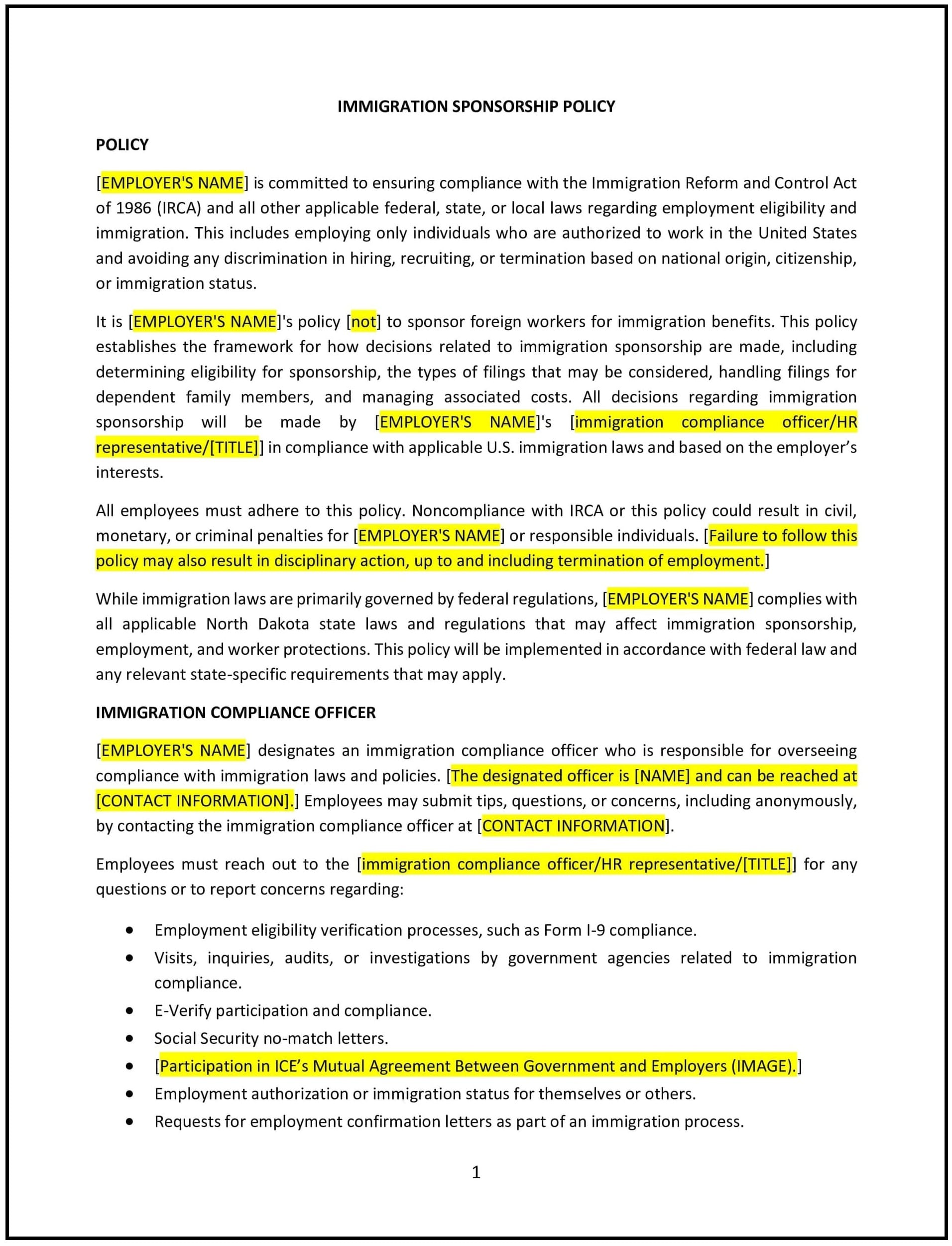Immigration sponsorship policy (North Dakota): Free template
Got contracts to review? While you're here for policies, let Cobrief make contract review effortless—start your free review now.

Customize this template for free
Immigration sponsorship policy (North Dakota)
This immigration sponsorship policy is designed to help North Dakota businesses establish guidelines for sponsoring foreign employees through work visas and permanent residency applications. The policy outlines eligibility, sponsorship procedures, and employer responsibilities.
By implementing this policy, businesses can attract skilled talent, support workforce diversity, and comply with immigration requirements.
How to use this immigration sponsorship policy (North Dakota)
- Define sponsorship eligibility: Establish criteria for which positions qualify for visa sponsorship.
- Outline visa types: Specify available sponsorship options, such as H-1B, L-1, or PERM labor certification.
- Set application procedures: Require employees to submit necessary documentation for sponsorship.
- Clarify employer obligations: Address legal and financial responsibilities related to sponsorship.
- Establish employee expectations: Outline work commitments and visa compliance requirements.
- Provide renewal guidelines: Ensure timely extension of visas and work authorizations.
- Review regularly: Update the policy based on changes in immigration law and workforce needs.
Benefits of using this immigration sponsorship policy (North Dakota)
Implementing this policy provides several advantages for North Dakota businesses:
- Attracts top global talent: Expands recruitment options beyond local candidates.
- Ensures legal compliance: Helps businesses navigate complex immigration requirements.
- Enhances workforce diversity: Supports an inclusive and international work environment.
- Reduces hiring delays: Provides a structured process for securing work authorization.
- Reflects North Dakota-specific considerations: Addresses labor shortages in key industries such as healthcare and technology.
Tips for using this immigration sponsorship policy (North Dakota)
- Work with immigration attorneys: Ensure compliance with visa and work authorization laws.
- Provide clear employee expectations: Outline job commitments and immigration obligations.
- Monitor sponsorship costs: Budget for application fees and legal expenses.
- Stay updated on visa regulations: Adapt policies based on federal immigration law changes.
- Adjust as needed: Modify sponsorship guidelines based on business growth and staffing needs.